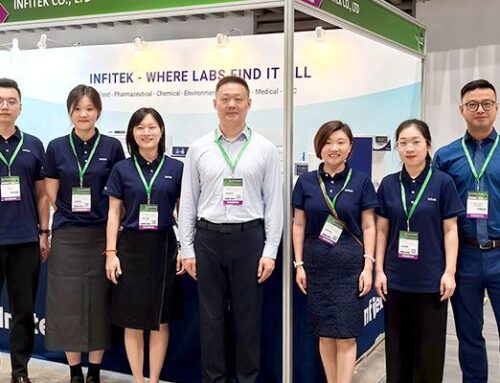In the realm of modern agriculture, the integration of cutting-edge laboratory equipment is revolutionizing farming practices by enabling precise analysis, optimization, and management of agricultural processes. From automated seed counters to grain moisture analyzers and leaf area meters, these essential tools play a pivotal role in enhancing productivity, sustainability, and innovation across the agricultural sector.
Automated Seed Counters: Enhancing Precision in Sowing
Automated seed counters are indispensable tools for seed research and farming operations. These devices use advanced imaging technology to rapidly and accurately count seeds, facilitating precise seed placement during sowing. By ensuring optimal seed spacing and uniformity, automated seed counters contribute to improved crop establishment, minimizing seed wastage and maximizing yield potential.
Grain Moisture Analyzers: Optimizing Harvest and Storage
Grain moisture analyzers are essential for monitoring the moisture content of harvested crops such as grains and seeds. By accurately measuring moisture levels, these devices enable farmers to determine the optimal timing for harvest and ensure proper post-harvest storage conditions. Maintaining ideal moisture levels helps prevent spoilage, mold growth, and quality degradation, preserving crop integrity and market value.
Leaf Area Meters: Assessing Crop Health and Development
Leaf area meters provide precise measurements of leaf surface area, offering valuable insights into crop health, photosynthetic activity, and growth dynamics. By quantifying leaf area index (LAI) and canopy coverage, these instruments aid in optimizing crop management practices such as irrigation, nutrient application, and pest control. Assessing leaf area enables farmers to monitor plant vigor, identify stress factors, and optimize yield potential.
Soil pH Meters: Balancing Soil Fertility
Soil pH meters are fundamental tools for soil analysis and fertility management. These devices measure the acidity or alkalinity of soil, providing critical information for adjusting soil pH to optimal levels for specific crops. By ensuring proper soil pH, farmers can enhance nutrient availability, promote root health, and optimize nutrient uptake efficiency. Maintaining balanced soil pH contributes to improved crop productivity and quality.
Precision Irrigation Systems: Efficient Water Management
Precision irrigation systems integrate sensor technologies and automation to deliver precise amounts of water to crops based on real-time environmental conditions and plant needs. These systems optimize water use efficiency, minimize runoff, and reduce water wastage. By providing targeted irrigation, farmers can optimize crop growth while conserving water resources and mitigating environmental impact.
Data Management Software: Harnessing Insights for Decision-Making
Complementing laboratory equipment, data management software plays a crucial role in aggregating, analyzing, and visualizing agricultural data. These software platforms enable farmers to make data-driven decisions regarding crop planning, resource allocation, and risk management. By harnessing insights from laboratory analyses and field data, farmers can optimize production practices, maximize profitability, and adapt to evolving agricultural challenges.
Embracing Innovation for Sustainable Agriculture
Incorporating advanced laboratory equipment into agricultural operations empowers farmers to embrace innovation and sustainability. By leveraging precision technologies, data analytics, and automation, agricultural stakeholders can enhance productivity, minimize environmental impact, and ensure food security for future generations.
In conclusion, agricultural lab solutions comprising essential equipment such as automated seed counters, grain moisture analyzers, leaf area meters, soil pH meters, precision irrigation systems, and data management software are instrumental in driving efficiency, sustainability, and innovation in modern agriculture. By harnessing the power of laboratory technologies, farmers can optimize crop management practices, maximize yields, and contribute to a more resilient and sustainable food production system.




Get Social